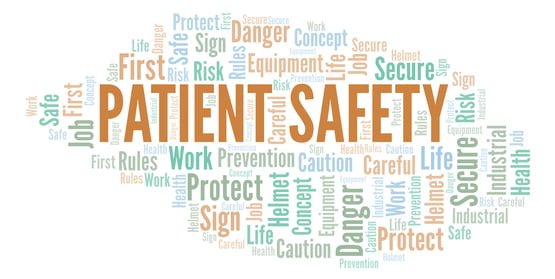AI standards need to be created to protect patient safety, experts warn
- 9 August 2019

Appropriate methods and standards around artificial intelligence need to be created to protect patient safety, experts have said.
Responding to the Government’s pledge of £250 million for a National Artificial Intelligence (AI) Lab, Matthew Honeyman, researcher at The Kings Fund, also said the NHS workforce needs to be equipped with digital skills for the benefits of new technologies to be realised.
“AI applications are in development for many different use cases – from screening, to treatment, to admin work – there needs to be appropriate methods and standards developed for safe deployment and evaluation of these solutions as they enter the health system,” he told Digital Health.
“Just as important as the money announced is the health service’s readiness to adopt new technology. Many staff in the NHS currently feel that IT makes their life harder, not easier.
“As well as being a world-leader in AI research, we need the NHS to be a world-leader in the use of AI in practice. This means upgrading the basic technology infrastructure in all areas of the NHS, giving people the skills to use digital tools that harness this research, so nobody misses out on effective products built by this research.”
Positive step
Adam Steventon, director of data analytics at the Health Foundation, said the commitment was a “positive step” but that technology needs to be driven by patient need and “not just for technology’s sake”.
“Robust evaluation therefore needs to be at the heart of any drive towards greater use of technology in the NHS, so that technologies that are shown to be effective can be spread further, and patients protected from any potential harm,” he said.
Steventon also added that clarity was needed “on where this money will come from”
The Government announced funding for the lab on 8 August, with Prime Minister Boris Johnson saying the NHS was “leading the way” in harnessing new technology. It was the second wave of funding pledged this week after a £1.8 billion investment in NHS capital spending was announced on 4 August.
The lab, which sits within NHSX, aims to improve cancer screening and speed up results, use DNA data to identify patients most at-risk of diseases, upskill the workforce to use AI systems and automate routine administration tasks to free up clinicians.
Downing Street’s statement suggests the lab will inspect algorithms already used by the NHS to increase the standards of AI safety and upskill the NHS workforce so they can use AI systems, but the Department of Health and Social Care (DHSC) did not provide further comment.
A spokesman for NHSX said: “To make the most of digital tools and AI we know that NHS staff will need training and support, which is why there are are number of actions underway, like the digital fellowships being offered by Health Education England, alongside the interim NHS People Plan which sets out a range of actions to ensure that the NHS workforce of the future is ready to take advantage of new technologies like genomics, robotics and AI.
“And we know we need to keep a focus on the basics too, which is why reducing the burden on staff is one of our top delivery missions at NHSX, which includes making systems work better together and improving the staff login process.”
Getting the data right
A dedicated lab for AI may have the potential to revolutionise the way healthcare is provided, but only with access to good quality NHS data.
Therefore, a “constructive partnership” between clinical scientists and technology developers is needed, Mr Honeyman added.
“There has been a lot of interest recently in how the NHS can extract value from the many kinds of data that it holds,” he told Digital Health.
“This is important because AI research is dependent on data created by, and about, NHS staff and patients, and relies on a constructive partnership between clinical scientists and tech developers.
“A model of a national AI lab should make it easier to ensure the benefits from its research are shared fairly amongst developers, the NHS, and most importantly patients.
“NHSX should use its resources in the lab to boost R&D in areas that are a priority for the NHS and which industry may not otherwise fund.
Public reassurance
To realise the benefits of AI the NHS first needs to do more to reassure the public about how the technology works, according to Tom Nadarzynski, a lecturer in social sciences at the University of Westminster.
He said the new investment could lead to inequalities that are “detrimental” to public health if public hesitancy around AI-led tools isn’t addressed.
“If public hesitancy is not addressed, the £250 million investment, and so the increased focus on AI in the NHS, can in fact increase health inequalities and may be detrimental to public health,” he said.




2 Comments
Whilst I agree upskilling the work force is essential the ability to assure the safety of AI also needs to be established. Robust mechanisms must be in place to ensure the clinical decision making by AI remains senstive and specific when the thing self learns and changes its own algorithms. We are just getting to grips with the safety assessment of agile, machine learning is another step on, not sure we know how to assure that yet. AI is completely different beast altogether. I know it will improve patient outcomes and free up clinical time; but the first time it makes a mistake may be a couple of years down the line and no one has intervened to change the code the thing has done it iself. How many patients will be impacted before someone asks why it wasnt checked to see if it was safe.
“To realise the benefits of AI the NHS first needs to do more to reassure the public about how the technology works”
I’m not sure if even its developers know how it works. At least for true AI systems, as opposed to algorithm based.
William
Comments are closed.